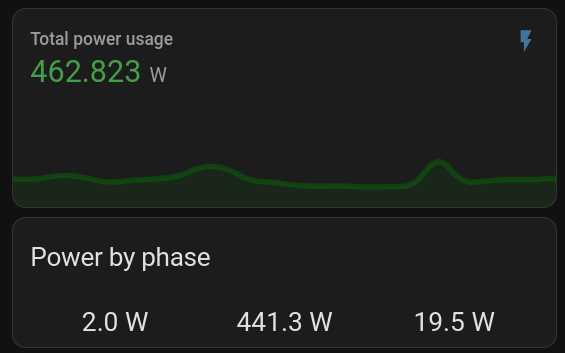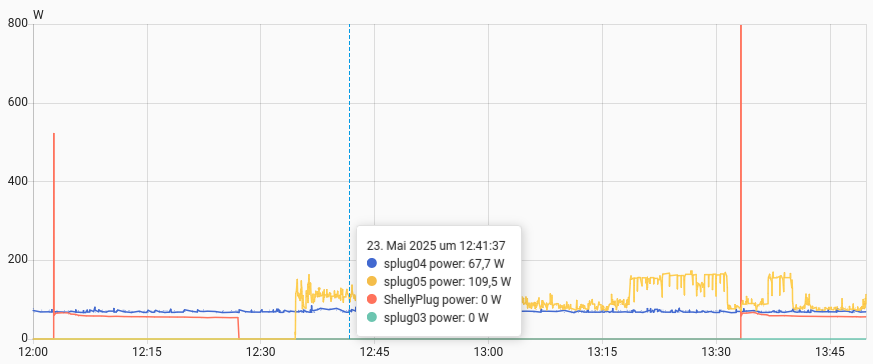As I'm currently doing a re-wire, it's a great opportunity for me to put some metering in the house.
I'm single-phase, but I plan to monitor multiple sections of the house, which are each wired for 100A independently.
I'm currently eyeing up either the Shelly Pro 3EM – 120A or the 50A.
As it will fit nicely in the consumer unit, and supports Ethernet.
I previously looked at the Aeotec clamp devices, but they seem to be difficult to find with multiple 100A connectors.
Emporia Vue was also a consideration, but I'm always a little hesitant to buy products that require custom firmware to even work properly, when others are available. And I'd also like to avoid using 2.4Ghz wifi for connectivity.
I'd love to hear any experiences people have had with similar devices, good or bad. And how the integration with HA went.

